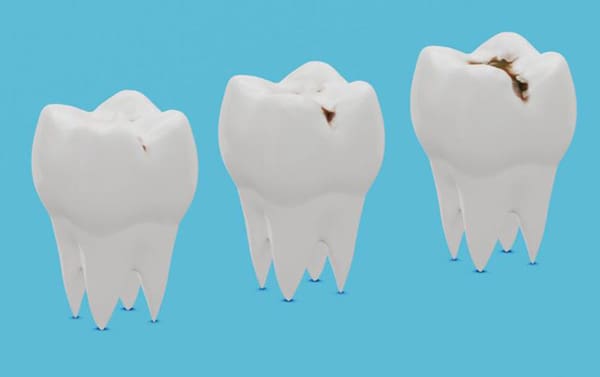
Let’s face it—no one likes cavities. They can cause toothaches, require fillings, and if left untreated, lead to more serious dental problems like infections or even tooth loss. The good news? Cavities are largely preventable with the right habits and a little know-how.
Whether you’re cavity-prone or just want to keep your smile healthy for life, here are the top ways you can avoid cavities and keep tooth decay at bay.
First Things First: What Are Cavities?
A cavity is a hole in your tooth caused by tooth decay. This happens when the bacteria in your mouth feed on sugar and starches, creating acids that eat away at your enamel—the protective outer layer of your teeth.
Over time, if that acid isn’t cleaned away, it can wear down the enamel and form a cavity. Left untreated, the decay can reach deeper layers of the tooth, causing pain, sensitivity, and infection.
Brush the Right Way—Twice a Day
It sounds basic, but brushing your teeth twice a day with fluoride toothpaste is your first line of defense against cavities. The key is consistency—and technique.
- Use a soft-bristled brush and gentle, circular motions.
- Brush for a full two minutes.
- Don’t forget to brush your tongue—it harbors bacteria, too.
Brushing removes plaque (the sticky film of bacteria) and food particles before they can do damage.
Floss Daily—Yes, Really
Even the best brushing can’t reach between your teeth. That’s where flossing comes in. Flossing removes plaque and food from those tight spaces where cavities often form.
Make it part of your daily routine—even if it’s just once a day before bed. Your gums and teeth will thank you.
Use Fluoride Products
Fluoride is a natural mineral that helps strengthen tooth enamel and reverse early signs of tooth decay. Use fluoride toothpaste and consider adding a fluoride mouth rinse to your routine, especially if you’re prone to cavities.
Your dentist may also offer professional fluoride treatments during your cleanings for extra protection.
Watch Your Diet
What you eat and drink plays a huge role in cavity prevention.
- Limit sugary and starchy foods like candy, chips, soda, and sweetened drinks.
- Choose tooth-friendly snacks like cheese, nuts, crunchy fruits, and veggies.
- Drink plenty of water—especially fluoridated tap water, which can help protect your teeth.
If you do indulge in sweets, try to do so with meals rather than snacking throughout the day, when your mouth has less saliva to neutralize acids.
Chew Sugar-Free Gum
Chewing sugar-free gum after meals can help increase saliva flow, which naturally washes away food particles and acids. Look for gum with xylitol, a sugar substitute that helps reduce cavity-causing bacteria.
Get Regular Dental Checkups and Cleanings
Even if your teeth feel fine, seeing your dentist every six months is essential. Cleanings remove tartar (hardened plaque) that brushing can’t, and your dentist can spot early signs of decay before they turn into bigger problems.
Early detection = less invasive (and less expensive) treatment.
Consider Dental Sealants
Dental sealants are a thin, protective coating applied to the chewing surfaces of your back teeth. They block out food and bacteria from settling into the grooves of molars—where cavities are most likely to form. Sealants are especially helpful for kids and teens, but adults can benefit too!
Cavities Aren’t Inevitable
With the right habits—brushing, flossing, eating smart, and seeing your dentist regularly—you can keep your teeth healthy, strong, and cavity-free.
So the next time you’re tempted to skip brushing or reach for that soda, remember: a little prevention goes a long way when it comes to protecting your smile.
